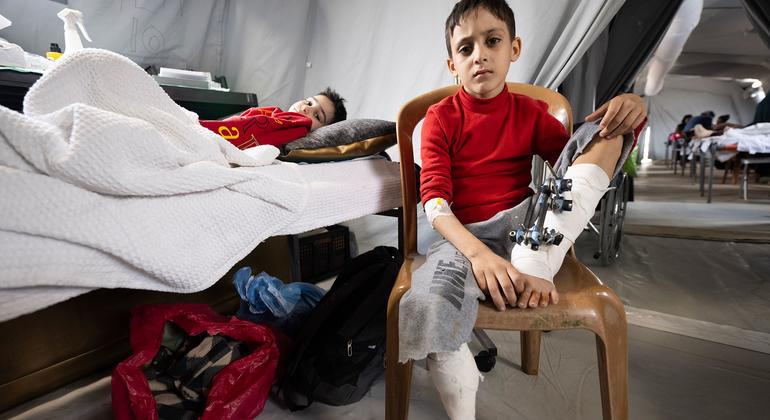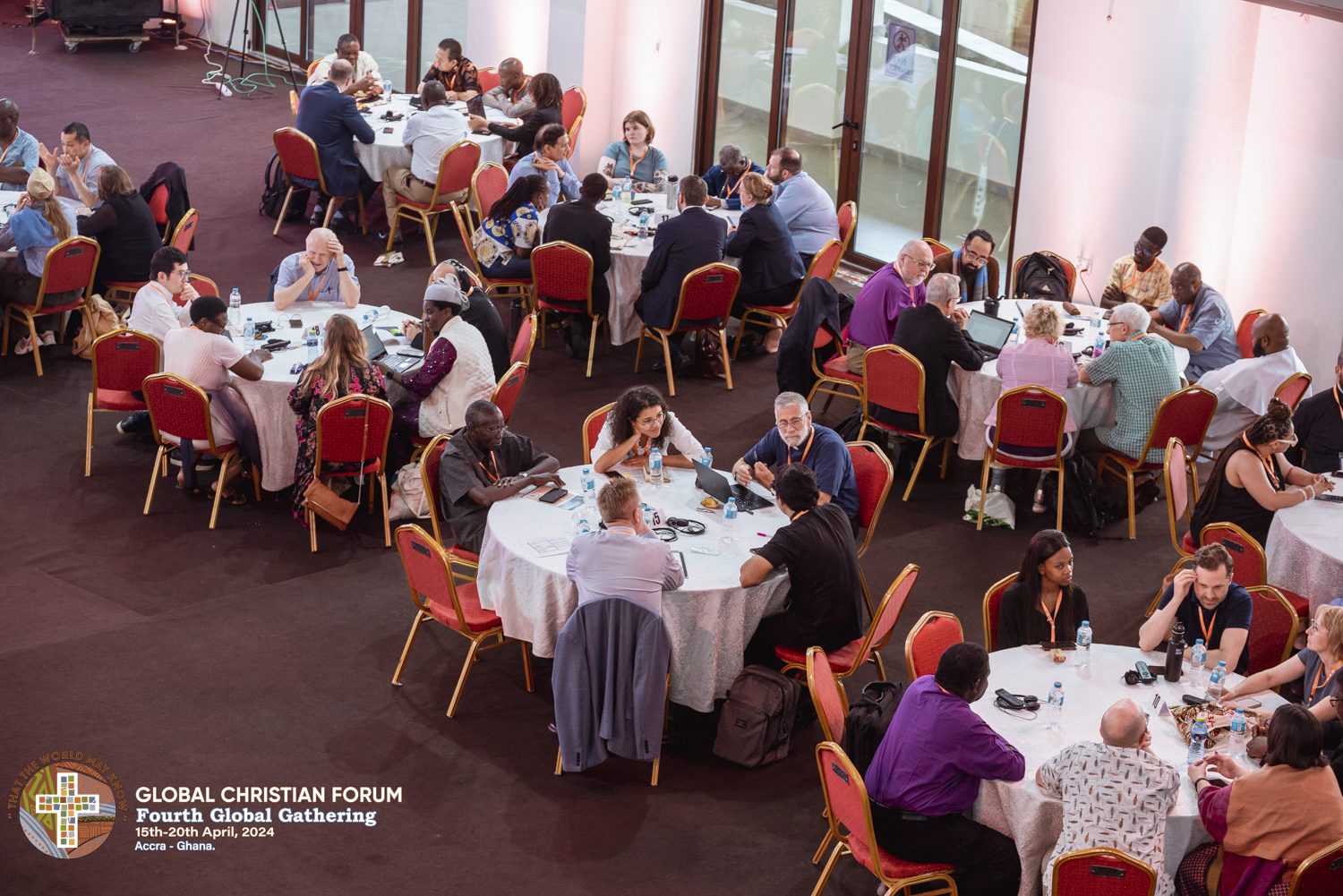“Six months into the war, 10,000 Palestinian women in Gaza have been killed, among them an estimated 6,000 mothers, leaving 19,000 children orphaned,” said UN Women, in a new report.
“More than one million women and girls in Gaza have almost no food, no access to safe water, latrines, washrooms, or sanitary pads, with disease growing amidst inhumane living conditions.”
Echoing those concerns, the UN World Health Organization (WHO) issued a new ceasefire call so that humanitarian relief can be brought into Gaza to help rebuild hospitals including Al Shifa, which has been “basically destroyed” after a recent Israeli incursion.
“The management is trying to get the emergency department cleaned (but) the work is just enormous to get just a cleaning done, let alone to get supplies,” said WHO spokesperson Tarik Jasarevic, following a new UN health agency mission to the devastated medical facility in Gaza City on Monday.
Little left to salvage
Only a third of Gaza’s 36 hospitals remain functional meaning that it is essential to “preserve what is left” of the enclave’s health system, Mr. Jasarevic insisted.
But needs remain massive with more than 76,000 people injured, according to the local authorities, and several UN agencies have repeatedly warned that amputations and C-section births have gone ahead without anaesthetic.
“Once again we’re calling really for the deconfliction mechanism to be effective, to be transparent and to be workable,” the WHO officer said, referring to the approvals system used by humanitarians in conjunction with the warring parties to try to ensure that aid convoys are not targeted.
Concerns remain over the deconfliction protocol after seven aid workers from the NGO World Central Kitchen were killed in Israeli airstrikes on 1 April.
But “more than half” of planned WHO missions between last October and the end of March “have been either denied or delayed or face other obstacles so they have to be postponed, so we really need that access”, Mr. Jasarevic insisted, amid repeated dire warnings from humanitarians about impending famine in Gaza.
No relief for injured
A lack of staff, needles, stitches and other essential medical equipment have meant that “injured children often languish in pain,” in hospitals or in makeshift shelters, noted Tess Ingram, UN Children’s Fund (UNICEF) Communication specialist.
Speaking from Cairo after her latest mission to northern Gaza where her UN vehicle came under attack, Ms. Ingram told journalists that it was notable just how many youngsters had been injured during intense Israeli bombardment, launched in response to Hamas-led terror attacks in southern Israel on 7 October.
“Imagine for a second being strip-searched naked and questioned for hours, told that you’re safe and then you leave; you quickly walk down the street praying that you will be okay. But then you’re shot at, your father is killed and a bullet penetrates your naked pelvis causing serious internal and external injuries that are going to require reconstructive surgery. At a field hospital Younis told me this happened to him. He is 14.”
The UNICEF officer also highlighted how difficult it remains to evacuate desperately injured or sick patients for medical care outside Gaza. Less than half of all “medivac” requests have been approved meaning that only around 4,500 people – “most of them children” – have been able to leave Gaza at a rate of less than 20 a day.
Rights chief’s call
Highlighting the plight of those in Gaza, UN human rights chief Volker Türk on Monday urged “all States with influence” to halt the “increasingly horrific human rights and humanitarian crisis” unfolding there.
“Israel continues to impose unlawful restrictions on the entry and distribution of humanitarian assistance and to carry out widespread destruction of civilian infrastructure,” the High Commissioner for Human Rights maintained, before repeating calls for an immediate ceasefire and the release of all remaining hostages.
West Bank spiralling
The High Commissioner for Human Rights also expressed deep concern about rising violence and “waves of attacks” in recent days against Palestinians in the West Bank “by hundreds of Israeli settlers, often accompanied or supported by Israeli Security Forces (ISF)”.
Following the killing of a 14-year-old Israeli boy from a settler family, four Palestinians, including a child, were killed and Palestinian property was destroyed in revenge attacks, Mr. Türk said in a statement.
Citing information received by his office, OHCHR, the UN rights chief reported that armed settlers and Israeli forces entered “a number of towns” including Al Mughayyer, Beitin village in Ramallah, Duma and Qusra in Nablus, as well as the Bethlehem and Hebron Governorates.
Dozens of Palestinians were reportedly injured in the ensuing violence “and hundreds of homes and other buildings, as well as cars, were torched”, the High Commissioner said, before insisting that “neither Palestinians nor Israelis should take the law into their own hands to exact revenge”.
Regional ‘trigger’
In a related development in Geneva, the head of a high-level UN-appointed independent rights probe into the Occupied Palestinian Territory spoke of her “serious alarm” at the potential for military escalation between Israel and Iran and the risks of triggering a regional conflict.
In a briefing to Arab League States days after Iran launched a massive drone and missile strike against Israel, Navi Pillay highlighted the “unprecedented” scale of war sustained by Israel.
To date, more than 33,200 people have been killed, according to Gaza’s health authority, Ms. Pillay said, with some 40 per cent of schools directly hit in attacks, and 1.7 million people displaced inside the enclave.
“The complete siege imposed on Gaza since October 2023 has resulted in an unimaginable humanitarian catastrophe with famine and starvation now a reality for its residents,” said the head of the Independent International Commission of Inquiry on the Occupied Palestinian Territory, including East Jerusalem, and Israel. The destruction of roads and infrastructure has severely compromised the ability of humanitarian actors to bring in aid to the population.”





